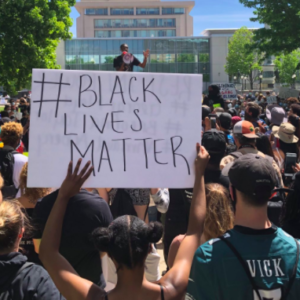The United States on July 4 celebrates one of the strangest independence days since all 56 members of the Continental Congress signed the Declaration of Independence in Philadelphia on July 4, 1776.
The 13 original colonies would henceforth claim to be free of British rule even though the American Revolution would last an additional seven years and two months before Britain and the United States signed the Treaty of Paris that formally ended it in 1783.
The difference between this July 4 and so many others is that the United States these days is divided between protests led by those who view the federal government as harshly authoritarian, versus traditional forces of law and order battling to defend American institutions and what they perceive as the American “way of life.”
The protest movement is dominated by Black Lives Matter, a mass movement in defense of African Americans against police brutality and other forms of historic repression and discrimination. But protests also encompass a broad spectrum of complaints and charges against President Trump and the governors and lower-level officials.
Outrage in the United States is compounded by widespread disagreement over how to deal with COVID-19 as the coronavirus spreads to alarming proportions in the wake of Trump’s intermittent forecasts that it would go away, that it’s under control, that the United States is doing more than other countries to deal with it.
While Black Lives Matter ebbs and flows as a powerful force across the country, Trump’s response to COVID-19 raises serious questions about his competence as a leader. You have to wonder about a guy who refuses to wear a face mask when Dr. Anthony Fauci, America’s best known medical expert and the director of the National Institute of Allergy and Infectious Diseases, not only wears one but recommends others do too.
The deep divisions in the United States have parallels elsewhere but are probably not as severe in most other countries.
In South Korea, right-wing politicos face a left-leaning government that arose after the Candlelight Revolution brought about the ouster and jailing of the conservative Park Geun-hye, but you don’t hear Koreans complaining about measures to stop outbreaks of the coronavirus, which never quite gets under control.
If rightist protesters no longer fill central Seoul waving Korean and American flags, as they did before COVID-19, they find a forum on YouTube and the internet.
Rightists say the conservatives who form the opposition to the dominant Minjoo or Democratic Party are not fighting hard enough to challenge President Moon Jae-in and his aides and advisers, many of whom came of age in protests against Park’s father, the long-ruling dictator Park Chung-hee.
The message of Korean rightists is that conservatives should intensify their campaign if they are to stand a chance of replacing the liberal government in the next presidential election in 2022. They have to convince voters that the government’s left-leaning policies are compromising and weakening the chaebol or conglomerates that dominate the economy and pursuing a dangerously soft line toward North Korea.
Foreign buyers don’t have the resources to import as many Korean products as they did before millions of potential customers were forced to stay at home as the virus spread globally, and North Korea shows no signs of giving up its nuclear program.
Protest in the United States, of course, is different. Demonstrators range from liberal to left-of-center to socialist to radical. Their outpourings bear a certain resemblance to Korea’s Candlelight Revolution with one important distinction.
Tens of thousands of police were deployed in Seoul and elsewhere, and there was almost no violence, no looting or vandalism, no attacks on shops and homes, no shooting and killing.
In the United States, police often are barely visible at protests. Calls of “defund the police” are the response to episodes of extreme police violence in which mobile phones have captured scenes of police killing suspects. Who needs the police, extremists ask, if rogue cops have a license to kill defenseless people?
Unrest across the United States raises questions about the meaning of the democracy that Americans believe is the foundation of the nation.
How can Americans take pride in their respect for human rights when the 12 million or so descendants of the 380,000 African slaves transported in chains to the United States still live in often crowded conditions with inadequate schooling, medical care, access to jobs and opportunities, often impoverished and imprisoned?
Americans face that question on a holiday that should be celebrated with fireworks and barbecues.
Koreans face different questions about a supposedly liberal regime that represses dissent after a leftist-led uprising that would not have been possible without the freedom to protest the ousted conservative government.

